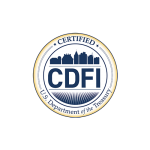Caffeine & Productivity
If the Starbucks drive-thru is part of your morning commute, you’re not alone! According to this poll, about two-thirds of Americans have at least one cup of coffee per day––resulting in an average of about 2.7 cups daily. Though it seems harmless, it’s very obvious that our overall relationship with coffee has changed. Instead of just “waking up” with coffee, Americans are using caffeine to power through fatigue, improve their alertness, and boost productivity.
While there’s evidence to support coffee’s superpower abilities to wake us from the dead––or a long workday––there are also other theories that coffee may actually be harming our productivity. In this blog, we’re going to weigh the pros and cons of caffeine. Keep reading!
Fatigue & Mood
Most people would agree that an iced vanilla latte, jet black cold brew, or an Americano is the best part of their day. Especially after working strenuous hours throughout the week. It’s no secret that working long hours throughout the week can leave you feeling exhausted, burned out, less alert, and less focused. Luckily, coffee does remedy fatigue and may also boost your physical performance!
In addition, coffee stimulates the release of dopamine––that feel-good chemical in your brain that helps improve mood and stabilize emotions. Lifted emotions and less fatigue means you’re more likely to get more accomplished.
Anxiety
Bad news for anxiety sufferers! Caffeine is a known stimulant, which means it stimulates the production of adrenaline––the fight-or-flight chemical in the brain that is released during times of stress. Caffeine consumed in small quantities is most likely going to give you a boost of energy. However, consumed in high quantities, you might end up with anxiety or restlessness––especially if you already have an underlying anxiety or panic disorder.
Sleep Issues
During the day, we wish our caffeine high could last until we leave the office. However, by the end of the night, we’re begging to stop feeling our afternoon cup’s vengeance. The effects of caffeine can last for several hours––depending on the individual. Even consuming coffee eight hours before bedtime can affect your ability to get a good night’s rest.
This lack of sleep can carry on to the next day where you repeat the vicious cycle once more.
More coffee, which in turn leads to less rest, and so on. As time goes on, you become sleep-deprived and need more than two glasses to wake up the following morning. Eventually, all of this consumption will take a toll on your overall productivity.
Caffeine Dependency
Remember, caffeine is still a drug and your brain can become physically dependent on it to function. Over time, your dependency can cause you to become more tolerant to higher levels of caffeine––thus making caffeine less effective.
If you should go one or two days without coffee, you’ll notice the physical effects almost immediately.
So, Is Caffeine Harming Your Productivity?
In a perfect world, humans would always have high energy and would never have to worry about fatigue or exhaustion. Since a utopia isn’t exactly where we’re all at, it can be helpful to indulge in a cup of coffee from time to time.
If you want to be productive, try limiting yourself to one cup of coffee a couple of times a week rather than every day. In addition, consider fixing your sleep schedule so that you can wake up refreshed and energized without the need for a stimulant to get you moving.
For more information about Health & Human Services, explore the Metro Community Development blog.






